- Home
- Parnell Hall
11-Trial Page 3
11-Trial Read online
Page 3
“How?”
“He was playing poker most of the night. From eight until two. If she was killed in that time frame, he’s off the hook.”
“Otherwise, he’s on it?”
“Not necessarily. He can’t prove where he ate dinner. But with a little legwork, maybe I could.”
“Uh-huh. Is that what you’re supposed to do?”
“I don’t know, because they don’t know the time of death yet.
“Right,” Alice said. “Well, is that it? Is that the case against him? The fact that he had the opportunity? As well as the means—the knife from his kitchen, right? That leaves only motive. Did the guy have any motive for her death?”
“Well...”
Alice pounced. “Well, what?”
“He’s involved with a younger woman.”
“Is he, now?”
“Yes, but it doesn’t mean a thing.”
“I’m not sure I like that attitude.”
“You know what I mean.”
“No, I don’t. What do you mean?”
“I mean, why would he kill his wife?”
Did you ever see Double Indemnity?”
“Who says she had insurance?”
“Doesn’t she?”
“I have no idea.”
Alice rolled her eyes. “Men.”
“What does that mean?”
“How can you solve this case if you don’t have the facts?”
I put up my hands. “Whoa. Slow down. Solve the case? I’m not the cops. I’m not even the attorney. I’m just some dipshit P.I. hired to get the facts.”
“And what are the facts?”
“I don’t know.”
“Nice job.”
“I told you, Alice, I haven’t even started. Today I took cases for Rosenberg and Stone.”
“You start tomorrow?”
“That’s right.”
“And what are you going to do?”
“Check the alibis. Get a list of the guys he played poker with and run ’em down.”
Alice looked at me. “This is for real? This is not a game?”
“Of course.”
“Richard’s really going to court?”
“Yes, he is.”
“He’s never been in court before.”
“He’s in court all the time.”
“You know what I mean. Not like this. A murder case.”
“No. Not like this.”
“He’s going to handle it himself? He’s not going to bring in some criminal attorney?”
“Not on your life. The guy’s living out a fantasy. He’s happy as a clam.”
“What about his client?”
“What about him?”
“I wonder if he’s as happy with the situation. If he’s in deep shit, and Richard’s having fun.”
“It’s not like that.”
“No?”
“The guy’s a friend of Richard’s. He knows him. He trusts him.”
“That just makes it worse.”
“Alice, I’ve known Richard a long time. When he says something, I can believe it.”
“See? You too.” Alice shook her head. “So, be that as it may, that’s the situation. Richard’s preparing for trial, and he’s hired you to investigate?”
“That’s right.”
That’s when Alice cut to the heart of the matter.
“How much is he going to pay?”
6
RICHARD LOOKED STRICKEN.
“What did you say?”
“You heard me.”
“I don’t think I did.”
“I want two hundred bucks a day plus expenses.”
“My god, I did.”
“Yes, you did.”
“I don’t think you understand the situation.”
“I understand it just fine. You’ve taken on a murder case. You’d like me to investigate. I’m perfectly willing to. But my rate happens to be two hundred bucks a day plus expenses.”
“Your rate is ten bucks an hour and thirty cents a mile. That’s what we agreed on way back when.”
“Exactly.”
“What does that mean?”
“Way back when. That was a long time ago.”
“So? Nothing’s changed.”
“Time’s passing. There’s inflation.”
“What inflation? We’re in a recession.”
“Richard—”
“No, I can’t believe you’re doing this.”
“I’m not doing anything. Everybody gets a raise.”
“A raise? Do you know what you just asked for? Did you do the math? A hundred and fifty percent.”
“That’s not the point.”
“Not the point?” Richard sprang from his chair, began pacing the room. “Ladies and gentlemen, the man says the amount of money is not the point. Next, he’s going to tell you it’s the principle of the thing.” He waved his finger. “Do not be deceived by these tactics. What we have here is a case of unmitigated greed.”
I shook my head. “Sorry, Richard. Not this time.”
“Not this time? You mean you’re going to ask again.”
“No, I mean I’ve asked before. To absolutely no avail.”
Richard shook his head. “This is ridiculous. I have a murder case to deal with. And so do you. You should be out now, tracking down those witnesses. Instead, you’re in here hassling me about money. And charging me for the time, I suppose.”
“I’m not charging you for the time. I’m not on the clock. I haven’t begun to investigate the murder yet. I don’t plan on investigating it unless I’m hired to do so. If hired, I’ll expect two hundred bucks a day plus expenses. Which is rather reasonable in this day and age. But perhaps you can find someone who’ll do it for less.”
Richard stopped, considered. He walked over to his desk, sat down, tipped back in his chair. He took a deep breath, exhaled slowly, the way the basketball coach had once taught me to relax before shooting a free throw.
“What you ask,” Richard said, “is outlandish. It is unreasonable, outrageous, and out of the question. Still, I suppose you have a point. A murder investigation is a special case.”
“No, Richard. Actually, I am a special case.”
Richard’s eyes narrowed. “And just what does that mean?”
“I’ve been working for you a long time. A raise is in order. Not just because this is a murder investigation. I need a raise straight across the board.”
Richard nearly gagged. “For trip-and-falls? You want two hundred bucks a day for trip-and-falls.”
“I want two hundred bucks a day to investigate. Whether it’s a murder, a trip-and-fall, or what have you. The work is the same.”
“Yeah. The same as ten bucks an hour. You come in here with I-need-more-money-because-it’s-a-murder-case-and-it’s-special. The minute I concede you might have a point, suddenly it isn’t special at all and you’re holding me up? I’m shocked. I’m wounded. I am cut to the quick.”
“You’re grossing millions a year.”
“That’s incompetent, irrelevant, and immaterial. What are you, on commission? You’re a hired employee.”
“Who needs a raise.”
“Two hundred bucks a day base rate—you know what that comes to? That’s twenty-five bucks an hour.”
“I can do the math.”
“Can you? Then do the math on this—I got six investigators besides you. What if all of them wanted two hundred bucks a day plus expenses?”
“You’d tell ’em they couldn’t have it.”
“And they’d say, But he’s getting it. Do you know what resentment that would breed?”
“Bullshit, Richard. You gotta work before you get a raise. None of them have been here long enough to even ask for one. Someone complains, you say, No one gets a raise until they’ve been here two years. No danger of that. Aside from me, no one’s even lasted one.”
Richard looked at me for a long moment. Then he got up, took off his jacket, draped it over the ba
ck of his chair. He reached up, yanked the knot of his tie down a couple of inches, and unbuttoned the collar of his shirt. He was wearing suspenders, probably just in case he had to argue in court. He looped his thumbs inside them, pushed them out and back, as if stretching before the fight. Then, without taking his eyes off me, he scooped up the phone and pushed the button for the intercom.
“Hold my calls.”
7
“MARVIN WAINWRIGHT?”
“Yes.”
“I’m Stanley Hastings. I’m investigating the Carbinder murder.”
I was indeed. Richard Rosenberg, after a long and painful negotiation, had finally worked things out. What we’d agreed to was of course a compromise. For investigating the murder I was being paid two hundred bucks a day plus expenses. No compromise there. That was reasonable, and there I would not budge.
Where I lost out was the routine Rosenberg and Stone work. No matter how hard I argued, there was no way Richard Rosenberg was paying me two hundred bucks a day. After all, as he pointed out, the work was erratic—some days I might work as few as three or four hours, and there was no way he was paying two hundred bucks for that.
In other words, there was no way Richard would guarantee an eight-hour day. He’d pay a flat rate for actual time served, and that was it.
When Richard wouldn’t budge, I tried for the equivalent—twenty-five bucks an hour and a dollar a mile. I didn’t get it, but the twenty bucks an hour and seventy-five cents a mile I finally settled for was more than I’d expected. So, all in all, I was in a fairly good mood.
For someone discussing a homicide.
At two hundred bucks a day.
Marvin Wainwright, the young man I was discussing it with, was a junior vice-president of the firm of Gladrags, Foster and Vale. Since the company was a textile manufacturer, I assumed Gladrags was a trade name, but Mr. Wainwright informed me there actually was such a person.
He also informed me that two nights before he had indeed played poker with Anson Carbinder.
“How long have you known Mr. Carbinder?”
Marvin Wainwright was a pudgy man with horn-rimmed glasses. He took them off, frowned. “Why do you ask?”
“For the purpose of identification. If you never met the man before, how could you swear it was him?”
I see.
“Or if you’d, say, played cards with him once or twice, but it was over a year ago—you see how that would be.”
He jammed his glasses back on. “No. How would it be?”
“You could identify him, but it wouldn’t count for much. As the ADA would point out.”
“The ADA?”
“Assistant district attorney. The prosecutor. When he cross-examined you.”
“Cross-examined?”
“Yes, of course. You’d have trouble, because he’d bear down on the identification. If you barely knew this guy, how could you swear it was the same man?”
“I see,” Wainwright said. He did not look happy.
“But that is not the case, right? You’ve known him for years and you know him well.”
“Yes, I do.”
“Then there’s nothing to worry about. Just tell your story, and don’t let them rattle you.”
“My story?”
“Poor choice of words. Just tell what happened.”
“I see.”
“So you might think of this as a dress rehearsal. You can tell me what you’re going to tell them.”
“Nothing much to tell. We had a poker game. Anson Carbinder was there.”
“Where was the poker game?”
“At Sammy’s.”
“And Sammy is...?”
“Sam Kestin. The game was at his place.”
“Where’s that?”
“Fifth Avenue and Sixtieth Street.”
“Is this a regular game?”
“Pretty regular. About once a month.”
“Is it always at Sam Kestin’s?”
“Usually. Sometimes it’s at Phil’s.”
“And Phil is...?”
“Phil Janson. He’s an actor. Has an apartment in the Village. Sometimes we play there.”
“I see. And was he at the game that night?”
“Yes, he was.”
“Who else was there?”
“Let me see. Me. Sammy. Phil. Anson, of course. Tim Hendricks. Ollie Pruett. And Barry Brown.”
That checked with the list Carbinder’d given me.
I nodded. “Is that it?”
“That’s it.”
“No women?”
He smiled. “No women.”
“Is that coincidence or policy?”
“That’s just the way it is. A poker game’s a chance to get away from the women. You know what I mean?”
“I suppose so. And what about Anson Carbinder?”
He frowned. “What about him?”
“What time did he get to the game, and what time did he leave?”
“Oh. The game started at eight. He got there around then.”
“Everybody show up at once?”
“No, of course not.”
“Well, when did you get there?”
“Around eight.”
“And who was there then?”
“I beg your pardon?”
“When you got there, who was already there?”
“Is it important?”
“I mentioned the ADA. The prosecutor. If you go on the stand, this is the type of question he’ll ask you. It would help if you were able to answer.”
“I see.”
“So, when you arrived at the game, who was already there?”
“Well, Sammy, of course.”
“Because it was his apartment?”
“Right.”
“Who else?”
“I think Phil was there.”
“You think?”
“It’s hard to remember. I didn’t know it was going to be important.”
“Of course. So what about Anson?”
“What about him?”
“Was he there when you got there?”
“No. He came later.”
“Later?”
“Not later. But after I did. Everyone was there by eight-thirty. In what order they came, I can’t tell you.”
“But you personally got there around eight?”
“That’s right.”
“And Sammy and Phil were already there?”
“I think so.”
“So Anson, Tim Hendricks, Ollie Pruett, and Barry Brown were not?”
“I didn’t say that.”
“I know you didn’t. I’m saying it for you. Feel free to contradict me.”
“I tell you, I don’t really remember.”
“That’s fine, if that’s really the case.”
He frowned. “What do you mean?”
“It’s better to say you don’t remember than to take a guess and wind up contradicting yourself. Because the prosecutor will pounce on any inconsistency and try to build on it. See what I mean? If you say Phil was there when you got there, and then make a statement that implies he arrived later, the prosecutor will jump on that and try to make it appear you’re lying. See?”
Wainwright grimaced. “I don’t like this.”
“I hate it myself. And I doubt if Anson Carbinder is too happy, either.” I smiled. “Look, I’m not trying to hassle you, I’m just trying to help. I know you want to help Anson. His attorney needs to know what you’re going to say when you get on the stand.”
“Yes, of course.”
“So, Anson arrived sometime between eight and eight-thirty. And what time did he leave?”
“The game broke up at two.”
“He was still there?”
“Yes, of course.”
“There’s no of course about it. Guys get cleaned out, fed up, or just leave.”
“That didn’t happen.”
“Everyone stayed till the end?”
“That’s right.”
“
Including Anson?”
“Including Anson.”
“Did he leave the game at any time during the course of the evening?”
“No, he did not.”
“Not even for a short time?”
“Not at all.”
“He didn’t get up to go to the bathroom?”
“Don’t be silly. Everyone gets up to go to the bathroom.”
“Well, there you are. Did he ever go to the bathroom, take a long time coming back?”
“No.”
“Are you sure?”
“Yes, I’m sure.”
“And you’ve known Anson Carbinder for years, you’d recognize him anywhere, you couldn’t possibly be mistaken, and you know he was at the poker game the whole night?”
“That’s right.” After a pause, Wainwright added, “I ought to. He beat me out of a big hand.”
“Oh?”
Wainwright leaned back in his chair, shook his head. “Yeah. It was seven stud, high/low. We play two-buck limit, three bumps a round. That adds up. This was a big pot.
“And Anson won?”
“Sure did. He’s sitting there with ace, two, three, four showing. Perfect low. We’re playing straights and flushes swing. So if he’s got a five, he can go both ways, take the whole pot. And I’m hoping he will, because I got a flush.”
“Oh, yeah?”
“Yeah. So if he swings, I got the whole thing.”
“Did he?”
“No. The son of a bitch has two aces and a four in the hole, and goes high with a full house.”
“And you went high too?”
“Sure did. So did everybody else. He was the only low on board. Looked like he had it locked. And he’s bumping like crazy, like he had a sure thing. So everybody goes high and he takes the whole pot.”
“That’s good.”
He looked at me. “Why is that good?”
“Hey, I’m sorry you lost your money. I mean it’s good you remember. Any specific incident like that is something you can throw at the prosecutor. He says, How can you be sure the guy was at the game? You say, Are you kidding? he beat me out of a big pot. The specific event lends much more weight than just insisting he was there.”
Wainwright nodded judiciously. “I see.”
“Anything else you remember about the game? Anything else that might help?”

 Clicker Training
Clicker Training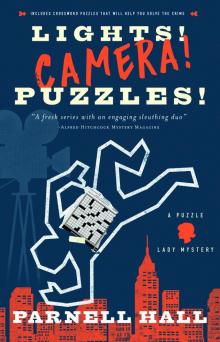 Lights! Camera! Puzzles!
Lights! Camera! Puzzles!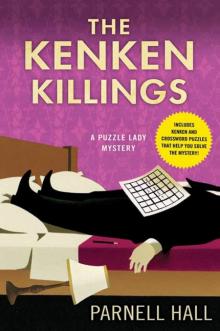 The KenKen Killings
The KenKen Killings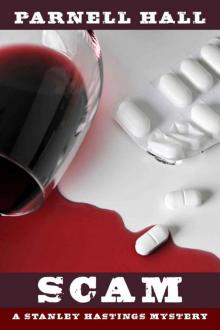 12-Scam
12-Scam The Puzzle Lady vs. the Sudoku Lady
The Puzzle Lady vs. the Sudoku Lady 2 Murder
2 Murder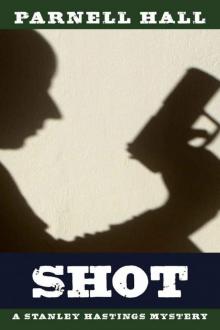 7 Shot
7 Shot You Have the Right to Remain Puzzled
You Have the Right to Remain Puzzled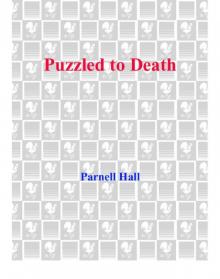 Puzzled to Death
Puzzled to Death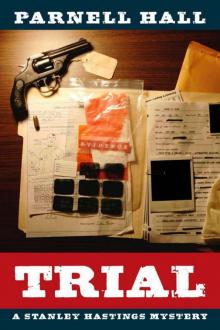 11-Trial
11-Trial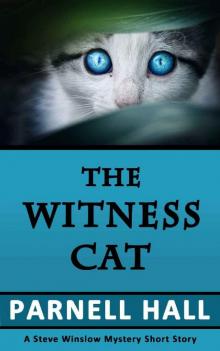 The Witness Cat (Steve Winslow Mystery)
The Witness Cat (Steve Winslow Mystery) With This Puzzle, I Thee Kill
With This Puzzle, I Thee Kill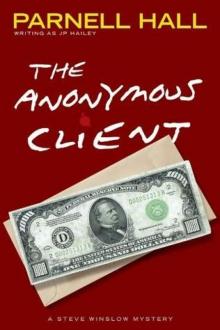 The Anonymous Client sw-2
The Anonymous Client sw-2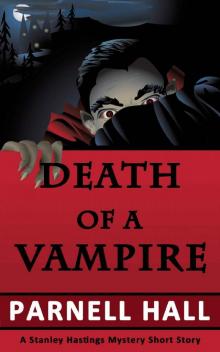 Death of a Vampire (Stanley Hastings Mystery, A Short Story)
Death of a Vampire (Stanley Hastings Mystery, A Short Story)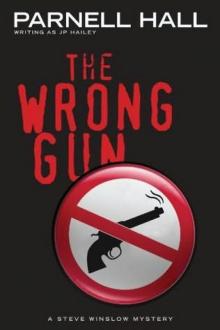 The Wrong Gun sw-5
The Wrong Gun sw-5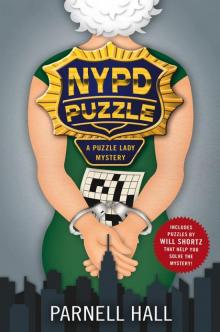 NYPD Puzzle
NYPD Puzzle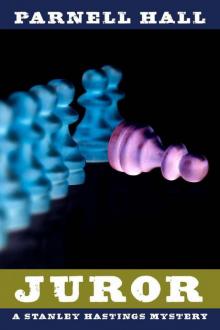 6 Juror
6 Juror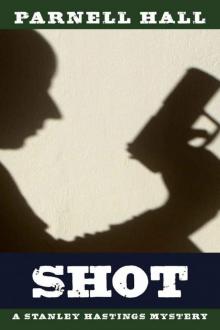 07-Shot
07-Shot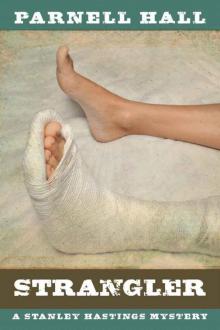 04-Strangler
04-Strangler 02-Murder
02-Murder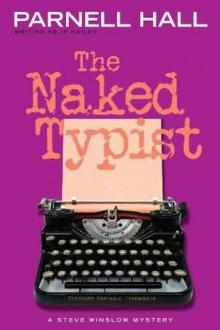 SW04 - The Naked Typist
SW04 - The Naked Typist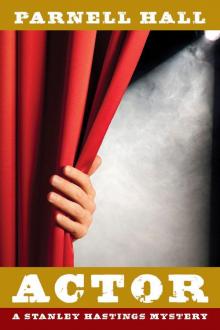 Actor
Actor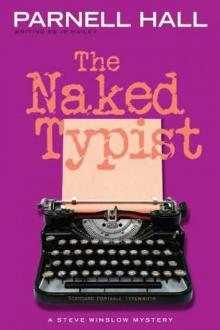 The Naked Typist sw-4
The Naked Typist sw-4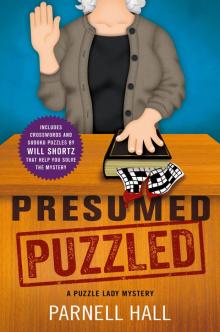 Presumed Puzzled
Presumed Puzzled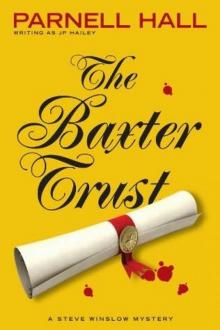 SW01 - The Baxter Trust
SW01 - The Baxter Trust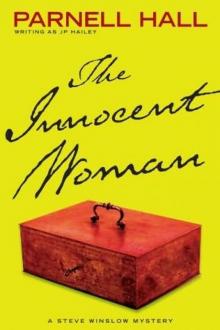 SW06 - The Innocent Woman
SW06 - The Innocent Woman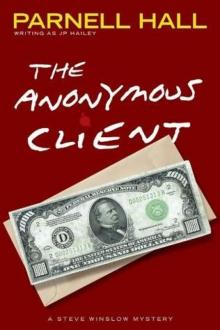 SW02 - The Anonymous Client
SW02 - The Anonymous Client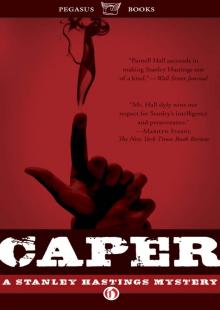 Caper
Caper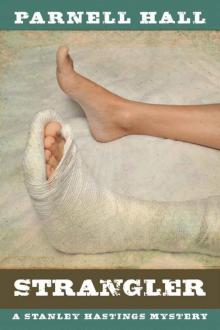 4 Strangler
4 Strangler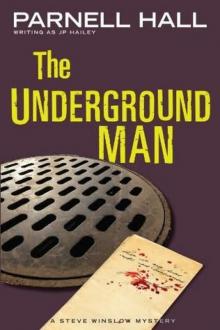 The Underground Man sw-3
The Underground Man sw-3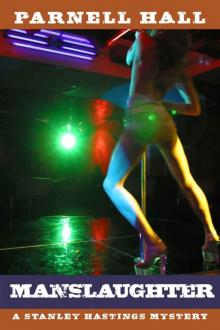 Manslaughter (Stanley Hastings Mystery, #15)
Manslaughter (Stanley Hastings Mystery, #15)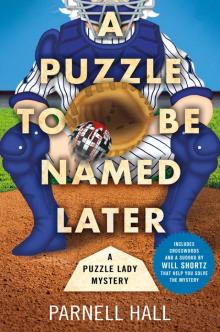 A Puzzle to Be Named Later--A Puzzle Lady Mystery
A Puzzle to Be Named Later--A Puzzle Lady Mystery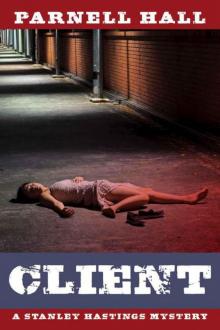 05-Client
05-Client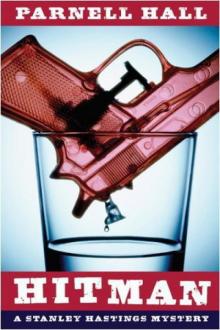 16 Hitman
16 Hitman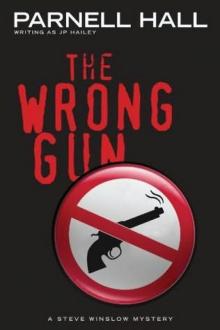 SW05 - The Wrong Gun
SW05 - The Wrong Gun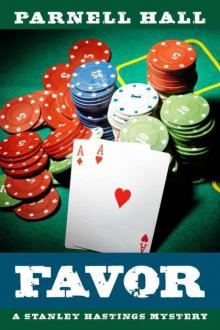 3 Favor
3 Favor Last Puzzle & Testament
Last Puzzle & Testament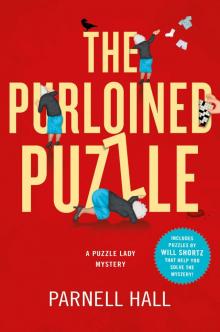 The Purloined Puzzle
The Purloined Puzzle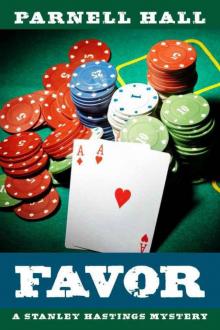 03-Favor
03-Favor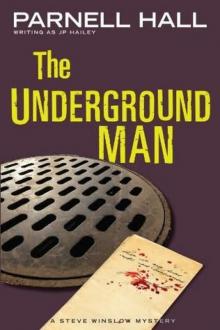 SW03 -The Underground Man
SW03 -The Underground Man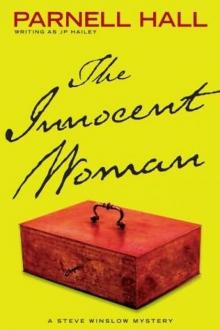 The Innocent Woman sw-6
The Innocent Woman sw-6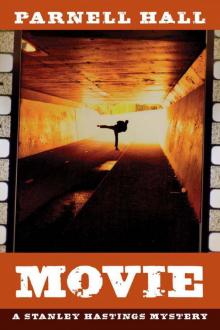 10 Movie
10 Movie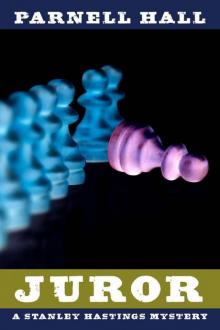 06-Juror
06-Juror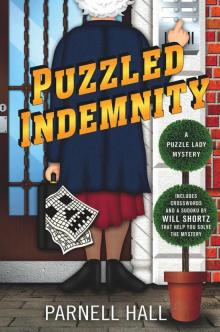 Puzzled Indemnity
Puzzled Indemnity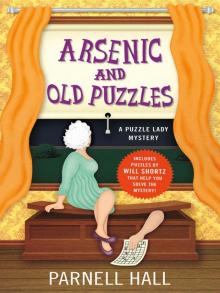 Arsenic and Old Puzzles
Arsenic and Old Puzzles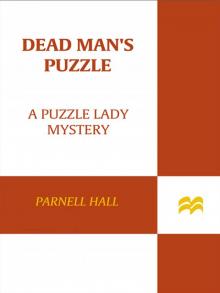 Dead Man's Puzzle
Dead Man's Puzzle Safari
Safari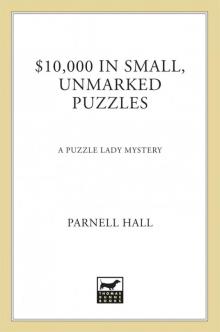 $10,000 in Small, Unmarked Puzzles
$10,000 in Small, Unmarked Puzzles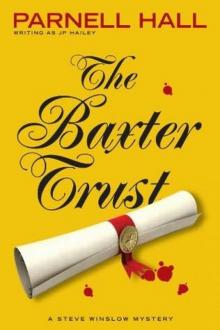 The Baxter Trust sw-1
The Baxter Trust sw-1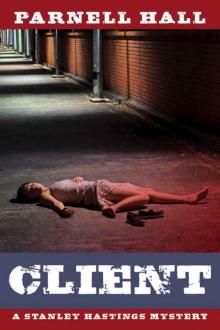 5 Client
5 Client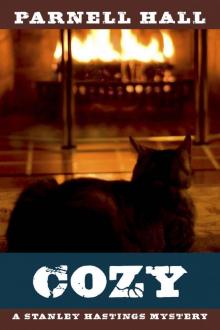 Cozy (Stanley Hastings Mystery, #14)
Cozy (Stanley Hastings Mystery, #14)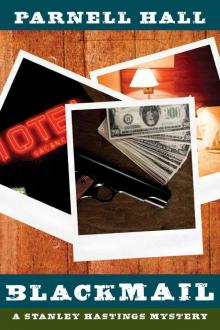 Blackmail
Blackmail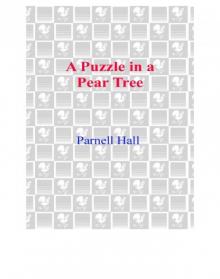 A Puzzle in a Pear Tree
A Puzzle in a Pear Tree A Clue for the Puzzle Lady
A Clue for the Puzzle Lady Clicker Training (Stanley Hastings Mystery, A Short Story)
Clicker Training (Stanley Hastings Mystery, A Short Story)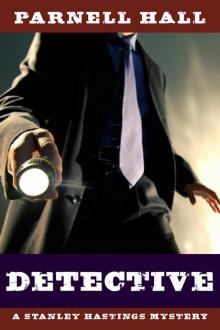 Detective (Stanley Hastings Mystery Book 1)
Detective (Stanley Hastings Mystery Book 1) 13 Suspense
13 Suspense